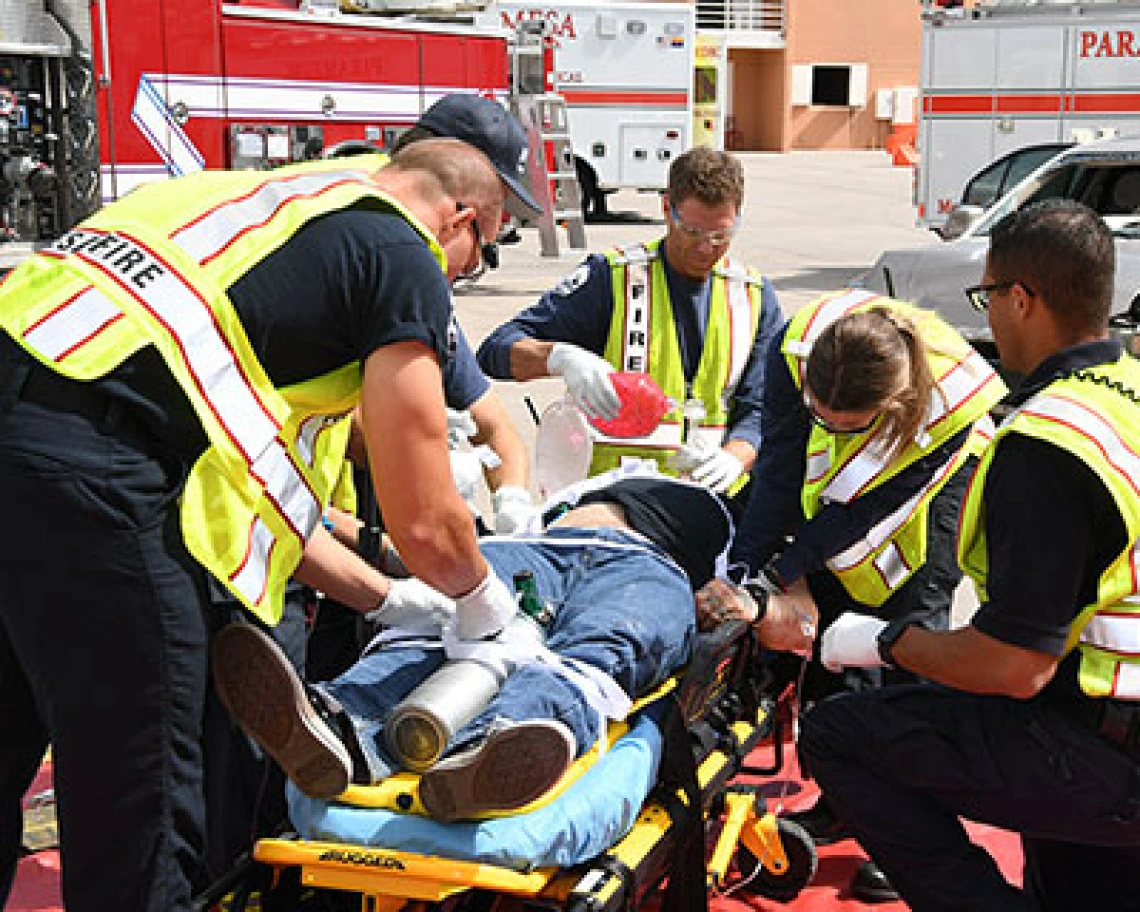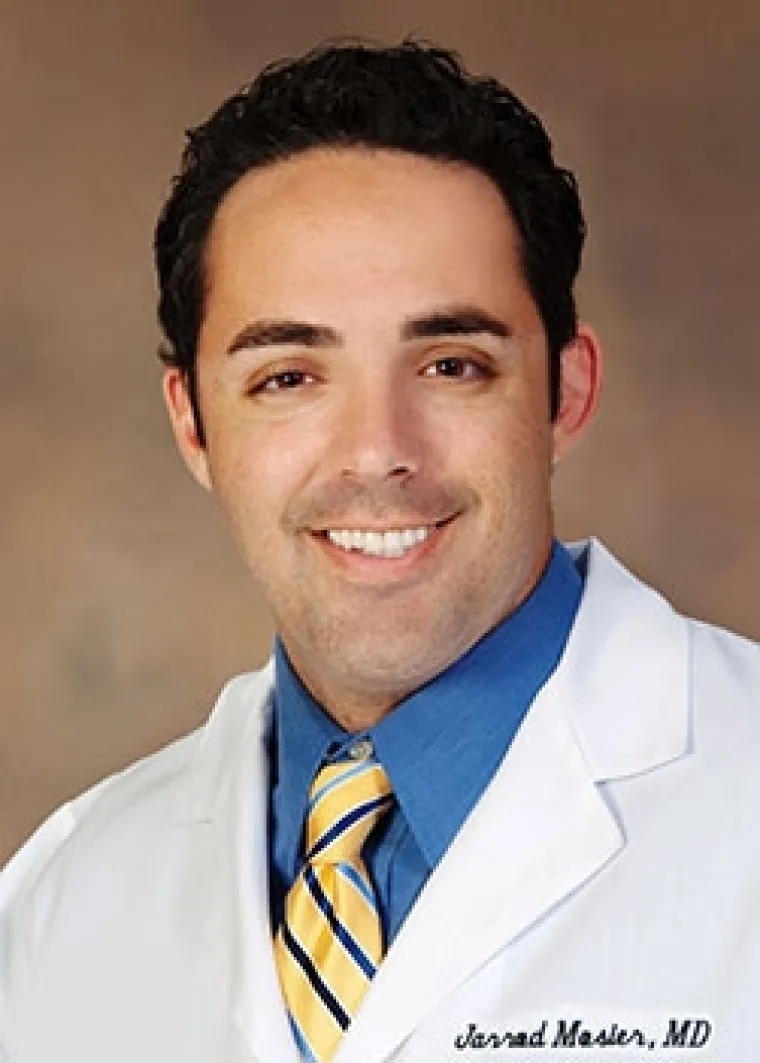Emergency Medicine Research
The Department of Emergency Medicine’s mission is to advance emergency medicine through research and scholarship, dedicated to fulfilling the land-grant institutional promises of caring for the diverse population of Arizona and greater Southwest. The department serves as an incubator for research, quality improvement and process initiatives with wide-ranging impact on clinical care.
Our scholarship has a long history of influencing emergency medicine. Our researchers were among the first to demonstrate the importance of public access to defibrillation for out-of-hospital cardiac arrest, and, in collaboration with the Sarver Heart Center, we helped establish the importance of continuous chest compression-only CPR. Our faculty members have broad research interests, reflecting their diverse backgrounds, but special areas of research emphasis include:
Our point-of-care ultrasound (POCUS) research program is at the forefront of both educational and patient care studies. We are dedicated to improving patient outcomes by advancing ultrasound use in clinical practice through comprehensive educational initiatives and rigorous research. Our studies span from hands-on ultrasound training for health care providers to clinical applications in emergency and critical care settings. This dual focus ensures that we not only enhance the skill sets of practitioners but also directly translate these skills into improved diagnostic and therapeutic capabilities for patient care.
In addition to educational and patient care studies, our research encompasses cutting-edge technology, including the development of artificial intelligence (AI) algorithms for ultrasound. Our research has received funding from the NIH and Department of Defense, as well as industry-sponsored technology research. Our AI research focuses on creating multi-modal AI models, wearable ultrasound devices and robotic ultrasound systems. These innovations aim to revolutionize the use of ultrasound in medical practice, ensuring precise, efficient and accessible diagnostic tools for health care providers worldwide.
The EMS group has a long history of performing practice-changing, funded EMS research initiatives through partnerships across the University of Arizona and with collaborative research groups across the country. Our research is funded by federal and state agencies, foundations and private/industry awards, totaling $10 million between 2020-2025. Ongoing EMS research includes:
- active enrollment in two large multi-center research studies focusing on pediatric prehospital patient care (PediDOSE and PediPART)
- rural health initiatives to improve the quality of EMS care across rural Arizona (AzQUALITy) and train rural emergency medical responders and critical care paramedics (R4 Program)
- targeting substance use disorder by training first responders to use naloxone and providing them with leave-behind Narcan kits
- operation of the National Highway Traffic Safety Administration grant-funded program to provide advanced physician level care for the Tucson metropolitan area (Arizona Physician One Program)
In addition to this funded research, the Division of Emergency Medical Services actively participates in multiple non-funded initiatives looking to improve prehospital operations and evaluate the translation of new science into clinical care.
Our department has a strong presence in critical care research, led by Vice Chair for Research Jarrod Mosier, MD. The university is a partner hub in the CORE-EM hub alliance for the Strategies to Innovate Emergency Care Clinical Trials Network (SIREN), the premier network conducting trials in neurologic, cardiac, trauma, respiratory and hematologic emergencies. We were a site for the Prevention and Early Treatment of Acute Lung Injury (PETAL) network, conducted important COVID-19 trials in the NIH ACTIV platform, participated in the CDC-funded Investigating Respiratory Viruses in the Acute Ill (IVY) network, and are conducting trials in the Strategies and Treatments for Respiratory Infections and Viral Emergencies (STRIVE) network. In addition, Dr. Mosier’s lab focuses on research spanning from basic science, translational studies and clinical trials on acute respiratory failure and acute respiratory distress syndrome (ARDS). The department also oversees several studies sponsored by the Department of Defense to evaluate the prehospital physiology and treatment of severe traumatic brain injury.
Our department has had profound influence on airway management in critically ill and injured patients. This area of focus is led by Professor of Emergency Medicine John Sakles, MD, who was one of the first to publish on the safety of rapid sequence intubation outside of the operating room. Our faculty have been heavily involved in airway management research to establish the role of video laryngoscopy, the importance of first pass success and defining the physiologically difficult airway. In 2023, a patent was awarded to our faculty members for a mixed reality simulator that blends the virtual and physical environments for training and research in airway management.
Arizona Emergency Medicine Research Center

The Arizona Emergency Medicine Research Center (AEMRC) provides the resources and infrastructure for multi-institutional collaborative research with the goal of improving health in the Southwest. Public engagement is a core mission.




